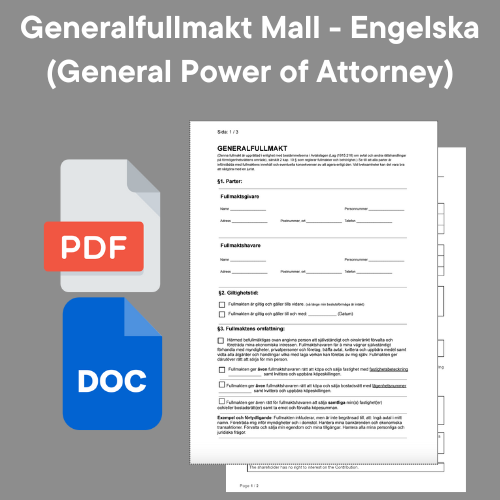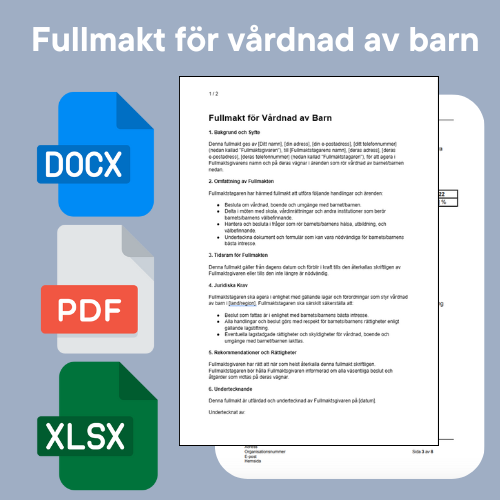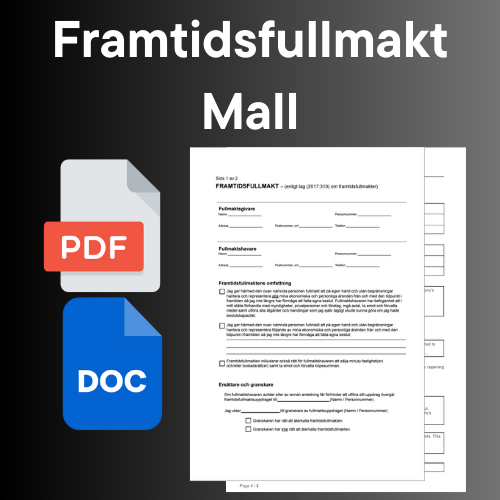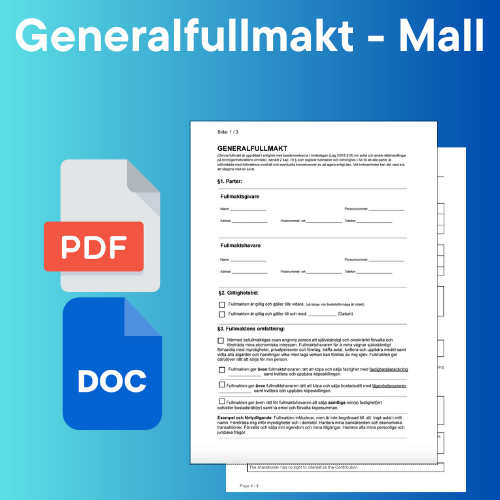To think about future power of attorney
Share
To think about future power of attorney
Table of contents
What is a power of attorney? Important form requirements and legal aspects When does the future power of attorney come into effect? Common mistakes to avoid Examples of legal disputes How to avoid problems The limitations of the future power of attorney SummaryWhat is a power of attorney?
A power of attorney is a legal document that gives a trusted person the right to make decisions on your behalf when you are no longer able to do so yourself. This may concern financial, personal or other matters. The Powers of Attorney Act, which came into effect in 2017, gives you the opportunity to decide in advance who will manage your affairs should you lose your decision-making capacity. The big advantage of a future power of attorney is that you yourself can appoint someone you trust, instead of a court having to appoint a good man.
Important form requirements and legal aspects
For a future power of attorney to be valid, it must meet several specific formal requirements:
- Writing: The power of attorney must be in writing.
- Witnessing: Two witnesses must be present and witness the signing. The witnesses must not be related to the power of attorney or the power of attorney holder, and they must understand the significance of their testimony.
- Clarity: It must be clearly stated that the document is a power of attorney for the future and what matters it covers.
It is also important to choose the right person as a power of attorney, as this person will have significant power over your affairs. The power of attorney should be someone you have full confidence in and who is capable of handling the tasks covered by the power of attorney.
When does the future power of attorney come into effect?
A power of attorney does not take effect immediately after it is written. Instead, it comes into effect when you can no longer take care of your affairs. The power of attorney is the one who assesses when this occurs, but in case of uncertainty, a review can be requested from the district court.
Common mistakes to avoid
There are some common mistakes to watch out for when setting up a power of attorney:
- Ambiguities in the document: If the power of attorney is vague, it can lead to interpretation problems and legal disputes. It is important to specify exactly which matters are covered.
- Wrong choice of power of attorney: Choosing someone who is not capable of managing your affairs can have serious consequences.
- Lack of reviewers: If no reviewer is appointed, the proxy holder can act without transparency, which increases the risk of abuse. Appointing a reviewer can counteract this.
Examples of legal disputes
There have been cases where future powers of attorney have led to disputes, particularly regarding the interpretation of the scope of the power of attorney or when the holder of the power of attorney has been accused of acting outside of his authority. In some cases, family members have felt that the power of attorney was abusing their position, leading to intervention by the guardian ad litem.
How to avoid problems
To minimize the risk of disputes and problems, it is important to:
- Use a legally reviewed template or get help from a lawyer when drawing up the power of attorney.
- Be clear and specific in the document.
- Choose a trusted person as a power of attorney.
- Consider appointing a reviewer to increase security.
The limitations of the future power of attorney
It is important to be aware that the power of attorney does not cover all areas. For example, it cannot give the power of attorney the right to make decisions about your medical care. Such decisions require other types of legal arrangements.
Summary
Establishing a power of attorney is an important step in ensuring that your affairs are managed according to your wishes should you lose your ability to make decisions for yourself. By following the legal formalities, being clear in your instructions, and choosing the right person as the power of attorney, you can avoid common mistakes and reduce the risk of future problems.




